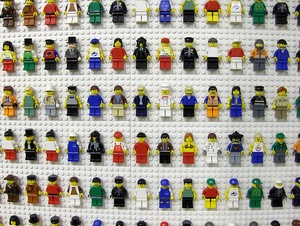Examiner.com
By jenny Westberg
July 13, 2010
Are you normal? Are you sure?
A growing number of behaviors and moods are being relabeled as mental disorders, according to two recent articles. Sadness, shyness, personality quirks and the ups and downs of everyday life may qualify almost anyone for a psychiatric diagnosis, effectively pathologizing normality.
Allen Francis, MD writes in the Psychiatric Times that almost everyone meets the criteria for one or another of the conditions listed in the Diagnostic and Statistical Manual of Mental Disorders, the book psychiatrists use to determine whether you have a mental illness. The fifth edition of the manual (DSM-5), due in 2013, will relax these criteria even further, giving psychiatric labels to even more people.
According to 2010 figures from the National Institute of Mental Health (NIMH), more than 25 percent of the adult population has a diagnosable mental disorder. That’s approximately 60 million people. A prospective study found that, by age 32, half of U.S. adults could be diagnosed with anxiety; 40 percent with depression; and 30 percent with alcohol abuse or dependence.
With criteria proposed for the DSM-5, psychiatrists could diagnose “Nicotine Use Disorder” or “Caffeine-Induced Sleep Disorder.” If your child has temper tantrums, that’s one of the signs of “Temper Dysregulation Disorder with Dysphoria.” Bad dreams? It could be a case of “Nightmare Disorder.”
Why is this a problem? Mental illness carries a stigma. A diagnostic label can follow you for the rest of your life. It is shared with your insurance company. Your family and friends might make certain assumptions about you. Your doctor may insist you need psychiatric drugs.
More and more behaviors, however, are being stamped as “mental illnesses.”
Francis writes that individual differences that were once accepted as normal have become medicalized. Our society, he says, has become perfectionistic and intolerant of even short-term distress.
Read entire article: http://www.examiner.com/x-31400-Portland-Mental-Health-Examiner~y2010m7d13-Psychiatric-overdiagnosis-means-normal-could-become-obsolete


